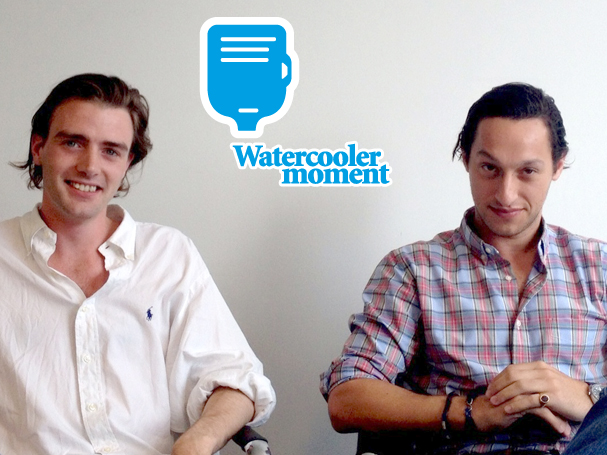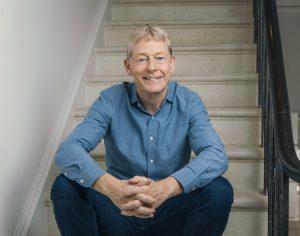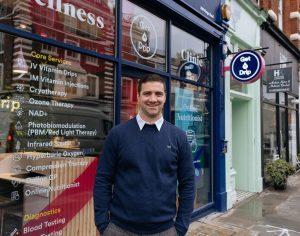In a nutshell, what does Flooved do?
Flooved makes academic textbooks free, engaging and interactive for maths and physics undergraduate students. We source our content directly from some of the best professors in the world so that students can go online and access a whole host of related textbooks and academic material pertinent to their course. There is also a social network that sits around this so you can ask questions on the texts, annotate them and see other people’s annotations.
Where did the idea for Flooved come from?
It honestly started from a drunken idea in the pub. We were chatting about our student days and saying it was crazy that firstly, students are still paying a fortune for academic textbooks and secondly, they are not social or interactive. We thought we could solve both these problems at once because the value chain of an academic publisher is much less than it used to be in terms of putting the content together, publishing and distributing – all because of the age of the internet. We thought we could do that and also build a social network to allow more cross collaboration between students, not only at one university but at multiple different universities studying the same text.
When did you start up?
July 2011
How has it gone so far?
It’s going extremely well. Since we re-launched three months ago, we have grown from nought to over 50,000 users worldwide in 192 countries, which is pretty good. So we are pretty excited that we are growing at a pretty rapid rate.
What has been the biggest challenge so far?
There have been a lot of big challenges. One has been getting the professor adoption and the professor engagement because they are obviously the ones submitting the content. That took a lot of time and was a lot harder than we expected. Building the initial seed user base was also very difficult because we were getting lots of feedback from customers and professors who were using it, and thus we had to rebuild it and tweak things accordingly.
How would you say you differentiate yourself from the competition?
On the one hand, traditional textbooks are our competition but they are damn expensive and professors are moving away to more online and cheaper resources. I would also say massive open online course (MOOC) providers like Coursera are our competition, but again they are aimed at a slightly different market and I would argue that the quality of our content is better than theirs. There is also competition from the likes of Wikipedia but obviously none of that content is vetted, nor is it curated.
What has been the best decision you have made to-date?
It would have to be changing our business model nine months ago and making all of our content free. Before we were licensing content from publishers but we actually decided that we would get people to create it for us for free instead. It has meant we can expand much faster into new regions because we are not constrained by things like geographical copyright restrictions. Also, the number of people we have made the platform accessible to has increased hugely.
Where do you see the business in 12 months’ time?
We hope to have over a million users. We know that is ambitious but we would like to have a platform where students from all over the world are coming together with professors to collaborate not only on maths and physics, but eventually on other subjects as well.
If you had one piece of advice for entrepreneurs, what would it be?
Never stop working and never go to sleep. Keep on slogging it out. It all comes off eventually if you put in the time. ![]()
Share via:


















































